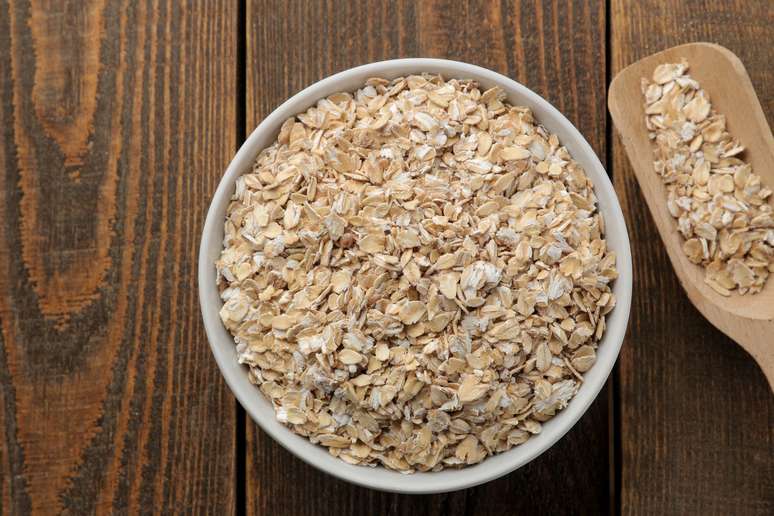This superfood is rich in fiber, antioxidants, vitamins and minerals
With unique qualities, oats are considered a superfood as they contain nutrients and bioactive compounds associated with anti-inflammatory, antioxidant and immunogenic responses. It is a source of carbohydrates, fibre, fatty acids, B vitamins (B1, B5, B6, B9), copper, iron, magnesium, manganese, selenium and zinc.
Nutritional composition
A half cup of quick-cooking dry oats contains about 150 calories, 5 grams of plant protein, 27 grams of carbohydrates and a few grams of fat. Oats also contain a variety of vitamins and minerals, including iron, magnesium, zinc, selenium, B vitamins, and small amounts of calcium and potassium. This is an impressive package of vitamins and minerals for a relatively low-calorie food, making oats a nutrient-dense ingredient.
Here are four good reasons to make oats a staple in your diet, plus healthy ways to incorporate them into your menu.
1. Rich in antioxidants
According to a 2018 study published in the journal International food research, the polyphenols present in oats have antioxidant and anti-inflammatory properties. These substances help fight aging and the risk of some diseases by reducing oxidative stress, an imbalance between the production of free radicals that damage cells and the body’s ability to fight their unwanted effects. This property of oats can be useful in the prevention of diseases such as type 2 diabetes and obesity.
2. Helps control weight
If you’ve been avoiding oats because of their carbohydrate content, you may be happy to know that this healthy starch actually helps with weight management. Research shows that regular oat consumers tend to have lower weight and waist circumference and lower body mass indexes. Oat’s whole grain status is one reason it allows for healthy weight management and better overall nutrition. That’s because, unlike refined grains, which are stripped of bran and germ, whole grains remain intact, meaning they retain fiber and essential nutrients.
Satiety, the feeling of fullness that persists after eating, is another benefit for weight management, and oats may have a positive effect, according to a small study published in the journal Appetite. The researchers compared people’s hunger and satiety levels after eating oatmeal or another breakfast food. The result: Not only did those who ate oatmeal experience greater satiety, but they were also less likely to snack in the hours after breakfast.
3. Contains a special type of fiber
The type of fiber present in oats is uniquely protective. Contains beta-glucan, which has been shown to support healthy immune function and regulate cholesterol and blood sugar levels. “In general, the daily recommendation for adults is around 20-30 grams, which is equivalent to three tablespoons,” explains Adriana Zanardo, nutritionist and consultant at Jasmine Alimentos. For these reasons, regular consumption of oats may help reduce the risk of heart disease and type 2 diabetes.
Beta-glucan also acts as an antioxidant. In this role it is linked to the fight against hardening of the arteries and neurodegenerative diseases, such as Alzheimer’s disease. It also helps maintain proper digestive function, prevents inflammation in the gut, and acts as a prebiotic, meaning it essentially nourishes the protective bacteria in the gut and inhibits the growth of harmful bacteria.
Regarding blood sugar regulation, a 2020 report published on Canadian Journal of Diabetes examined the use of oats as a short-term intervention in patients with type 2 diabetes. Consumption of oats resulted in significant reductions in blood sugar levels and improved insulin sensitivity. The researchers say the effect is due in part to beta-glucan and concluded that oats can be used to prevent and manage diabetes.
4. It makes you live longer
A 2019 meta-analysis published in EEuropean Journal of Preventive Cardiology they found that consuming oats can reduce the risk of all causes of death, including heart disease, the leading cause of death in the country. The researchers examined 33 previously published studies to determine the relationship that specific foods had with overall mortality or cardiovascular disease. They found that consuming whole grains, including oatmeal for breakfast, was associated with a lower risk of death from all causes, including heart disease.
Which oats to choose?
People often ask whether rolled (cut) oats are better than other types, as they are technically less processed. According to the U.S. Department of Agriculture, the nutritional values for 40 grams (one-quarter cup) of cut oats are about the same as 40 grams (half a cup) of rolled oats. In other words, you get similar benefits from whichever type you choose, as long as it’s sugar-free. Buying unsweetened oats also allows you to choose the type and amount of sweetener you want to add.
Healthy ways of consuming
If you start your day with a bowl of oatmeal, top it with healthy add-ins. Season your oatmeal with a touch of cinnamon or ginger (anti-inflammatory) and fresh fruit. Add nuts or seeds for healthy fats and bonus plant-based protein. You can also add chopped or chopped vegetables. If you need to further increase the protein content of your meal, combine plant-based protein powder with oatmeal before adding hot water. You can also refrigerate your favorite combination while you sleep and enjoy it cold in the morning.
It also pairs well with savory dishes
Oats also work well with savory ingredients. Cook it, then top with sauteed or oven-roasted vegetables and herbs, along with an egg, beans, lentils or tofu for protein and sliced avocado or a drizzle of pesto for healthy fats.
You can also use oatmeal in veggie burgers and as a substitute for breadcrumbs in everything from meatballs to casseroles.
Oatmeal or oatmeal are also great alternatives for pancakes and baked goods, including cookies, bars, banana bread and muffins.
With all the tasty ways to enjoy oats, it’s easy to enjoy the benefits of this beneficial carbohydrate.
Sources: Adriana Zanardo (nutritionist); Cynthia Sass (nutritionist) / Health
Source: Terra
Ben Stock is a lifestyle journalist and author at Gossipify. He writes about topics such as health, wellness, travel, food and home decor. He provides practical advice and inspiration to improve well-being, keeps readers up to date with latest lifestyle news and trends, known for his engaging writing style, in-depth analysis and unique perspectives.








